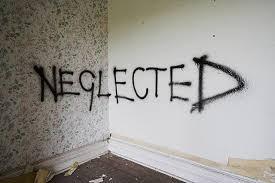
Article 19 of the Convention on the Rights of the Child requires States to protect the child against “all forms of physical or mental violence, injury or abuse, neglect or negligent treatment, maltreatment or exploitation, including sexual abuse.”
Neglect, with respect to parents or guardians, has been defined as “a type of maltreatment that refers to the failure by the caregiver to provide needed, age-appropriate care although financially able to do so or offered financial or other means to do so” (USDHHS, 2007). There is no universal definition of State neglect, and it could theoretically be applied to a range of circumstances, for example a failure to provide adequate education, or a refusal to provide adequate housing. However, in order to narrow the definition, avoid overuse, and for the purposes of this information page, State neglect concerns circumstances in which the State is substituted as the ‘caregiver’ in respect of the definition above. In other words, State neglect is “a type of maltreatment that refers to the failure by the State to provide needed, age-appropriate care although financially able to do so or offered financial or other means to do so.” State neglect might occur when a child is in its round-the-clock care, for example in the criminal justice process, or alternative care institutions.
According to the report of the Independent Expert for the United Nations Study on Violence Against Children (RIE, para 58):
"Neglect is also a feature of many residential institutions where conditions are so poor that they put the health and lives of children at risk. In many facilities for children with disabilities, there is no access to education, recreation, rehabilitation or other programmes. Children with disabilities are often left in their beds or cribs for long periods without human contact or stimulation. This can lead to severe physical, mental and psychological damage."
States must take appropriate steps to ensure children are not exposed to violence in state-run institutions. Failure to do so is a form of State neglect. However, the UN Study notes that there is a heightened risk of violence to children in care institutions, and “the greatest amount of evidence concerns violence of various kinds by staff, including neglect, and violence by children against other children” (UNVC, 2006: 187).
Inadequate conditions for children in detention may also constitute neglect. In many countries, laws require children to be transferred quickly from police custody to an appropriate children’s facility or brought before a judge within 24 to 48 hours or less. But in practice, children may remain in police lock-ups for long periods of time, often without notification to their parents or guardians, notes the Study. In the Philippines, laws requiring police to inform the Department of Social Welfare and Development within eight hours of a child’s arrest are frequently not observed, and children may remain detained in police cells for up to a month. In Jamaica, an investigation in the late 1990s “found that many children who were abused, neglected or accused of only petty offences remained in filthy and overcrowded police lock-ups for periods of eight months or more” (UNVC, 2006: 198).
Perhaps unsurprisingly, neglect contributes to mortality and morbidity in young children. According to a report by the World Health Organisation, girls face a greater risk of neglect, (Krug et al. 2002) while disability is also a risk factor (UN, 2005).
What can be done about it?
State neglect is a broad and, as already explained, ill-defined issue, and so strategies aimed at preventing bad practice might better be aimed at specific issues. For example SOS Children’s Villages International has undertaken a huge amount of work in order to improve conditions for children in alternative care. The Better Care Network also provides a library of information relating to children in care.
Many different organisations are also working on improving conditions for children in detention, such as Penal Reform International, and the Open Society Institute.
Source: Crin
 FR
FR EN
EN AR
AR








